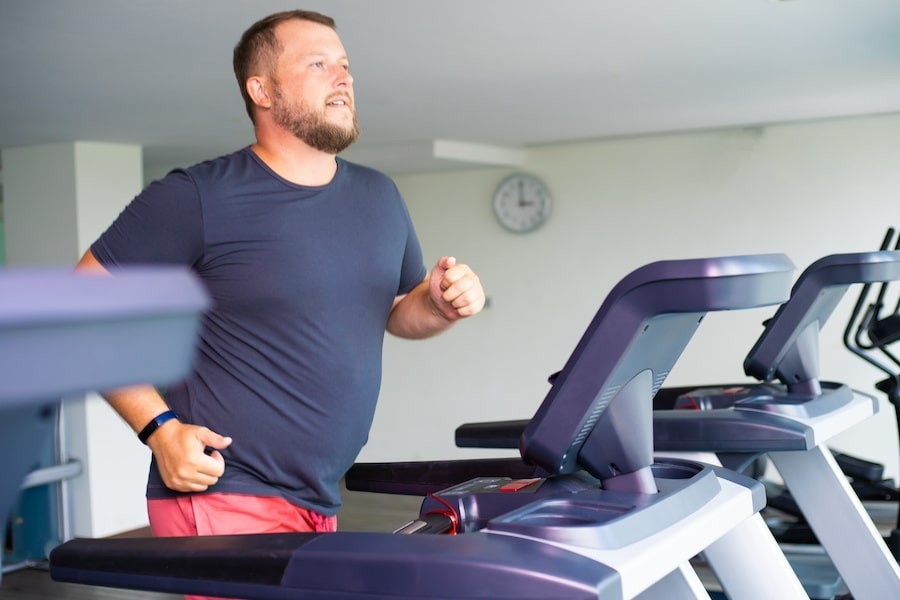The benefits of exercise for diabetes

The benefits of exercise for diabetes
Exercise and diabetes: a winning team! All national and international recommendations highlight physical activity as one of the best daily partners in the management of diabetes [1,2].
Are there any particular forms of physical exercise that people living with diabetes should favor or perhaps avoid completely? Here are some answers and advice to help you take full advantage of the positive effects of exercise on diabetes.
Which exercises should be favored for type 1 diabetics?
Regular physical exercise with type 1 diabetes is not only possible but highly encouraged [1,2,3]. The simple act of moving regularly, such as walking for relaxation for at least 10 minutes, is greatly beneficial to health and well-being [1,2,4,5] and has positive effects on morale and quality of life [2,3,6,7].
However, many people living with type 1 diabetes are inactive due to a fear of hypoglycemia, loss of glycemic control or lack of motivation [3]. If you are worried about these risks, you should know that being physically active is not dangerous for people with type 1 diabetes and no sport is prohibited if certain precautions are taken [1,3]:
- Focus on strength and resistance exercises, such as sprinting and weight lifting, in the morning [5];
- Be particularly careful with high-adrenaline sports which can trigger associated hyperglycemia [1,5].
- Monitor your blood glucose levels before, during, and after each workout in order to prevent potential complications (hypo- or hyperglycemia) of your diabetes [1,2,3,5].
By adopting a rigorous attitude in testing your blood glucose levels, even high-level sports will be accessible to you [1,2]!
Which exercises should be favored for type 2 diabetics?
Whether it is endurance or resistance, regular physical activity is always beneficial for health and helps improve the psychological state [1,2,4,7]. In order to maximize its effectiveness, alternate or combine different types of sports during training sessions:
- Endurance (such as jogging, walking, swimming, and cycling)
- Strength (weight training or racket sports for example)[1,2,5].
Furthermore, the benefits of exercises on type 2 diabetes will be felt more with increased frequency of workouts, with body toning contributing in particular to weight loss [1,2,4]. Frequent exercise increases insulin sensitivity [1,2,4], and many studies also show that 30 minutes of sport each day improves blood glucose balance [1,2,4,5].
Therefore, be as active as possible by maximizing dynamic break times (outdoors or indoors) during your day. In this way, you will optimize your diabetes control [2,4] and at the same time develop your self-confidence and improve your well-being [2,7]. In fact, sporting activity particularly stimulates the production of endorphins. This will help you feel in a good mood, calmer and more relaxed after a workout [7].
Which exercises should be favored for gestational diabetics?

Which exercises should be favored for gestational diabetics?
If you have gestational diabetes, set a moment aside every day to burn off some energy, while being careful to adapt the effort to suit your stage of pregnancy [8]. You should focus on moderate-intensity sports with a goal of 20 to 30 minutes per day [2,8,9].
Your sports activities (of any type) will help you better stabilize your gestational diabetes by limiting variations in your blood glucose levels. Being active will bring you a feeling of fullness and allow you to decompress, experiencing pregnancy with maximum serenity [2,8,9].
Which sports should you avoid?
No physical exercise is prohibited in case of diabetes: there are therefore many possibilities available to you [1,2,5]! However, we have noted a few special precautions in order to reassure you and better prepare your sports sessions [1,2,5], to avoid losing control of your diabetes:
- Take care to dose the intensity of your sport according to your physical condition, enjoying yourself because the exercises are adapted to your abilities [1,5];
- Remember to hydrate well, before, during, and after sports sessions;
- Do not forget to pack a few sugar cubes (or snacks, treats, etc. according to your preferences and individual habits), in addition to your bottle of water [1,2,3,5].
Martial arts, gymnastics, endurance, football, racquet, or combat sports: whatever your physical activity, the most important thing is to get your body moving [2]. There is no need to take the experience to the extreme unless you feel the strength and motivation to do so [1,2]. Either way, don't pressure yourself and choose exercises and workouts according to your wishes.
Sources:
- Christine Shugart, Jonathan Jackson, Karl B Fields. Diabetes in sports. Sports Health. 2010 Jan;2(1):29-38.
- Colberg SR, Sigal RJ, Yardley JE, Riddell MC, Dunstan DW, Dempsey PC, Horton ES, Castorino K, Tate DF. Physical Activity/Exercise and Diabetes: A Position Statement of the American Diabetes Association. Diabetes Care. 2016 Nov;39(11):2065-2079.
- Riddell MC, Gallen IW, Smart CE, Taplin CE, Adolfsson P, Lumb AN, Kowalski A, Rabasa-Lhoret R, McCrimmon RJ, Hume C, Annan F, Fournier PA, Graham C, Bode B, Galassetti P, Jones TW, Millán IS, Heise T, Peters AL, Petz A, Laffel LM. Exercise management in type 1 diabetes: a consensus statement. Lancet Diabetes Endocrinol. 2017 May;5(5):377-390.
- Lambrinou E, Hansen TB, Beulens JW. Lifestyle factors, self-management and patient empowerment in diabetes care. Eur J Prev Cardiol. 2019 Dec;26(2_suppl):55-63.
- Yurkewicz M, Cordas M Jr, Zellers A, Sweger M. Diabetes and Sports: Managing Your Athlete With Type 1 Diabetes. Am J Lifestyle Med. 2016 Jul 8;11(1):58-63.
- Gregory N. Ruegsegger, Frank W. Booth. Health Benefits of Exercise. Cold Spring Harbor Laboratory Press. 2018 Jul 2;8(7):a029694.
- Marilisa Amorosi, Correlation between sport and depression. Psychiatria Danubina, 2014; Vol. 26, Suppl. 1, pp 208–210.
- Padayachee C, Coombes JS. Exercise guidelines for gestational diabetes mellitus. World J Diabetes. 2015 Jul 25;6(8):1033-44.
- Ming WK, Ding W, Zhang CJP, Zhong L, Long Y, Li Z, Sun C, Wu Y, Chen H, Chen H, Wang Z. The effect of exercise during pregnancy on gestational diabetes mellitus in normal-weight women: a systematic review and meta-analysis. BMC Pregnancy Childbirth. 2018 Nov 12;18(1):440.

